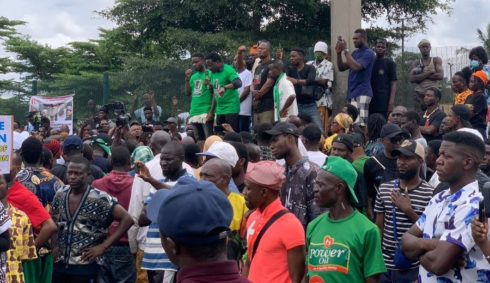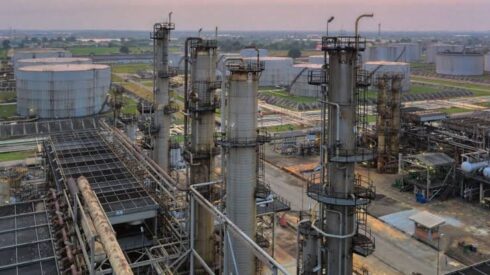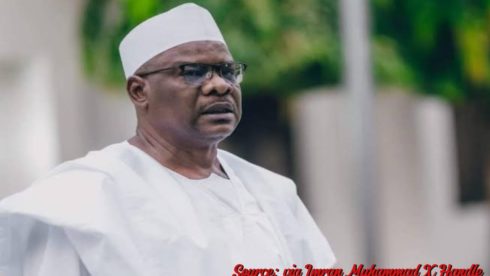The ’10 Days of Rage’ protest, which culminated on August 10, 2024, has left Nigeria grappling with severe socio-economic consequences. What began as a nationwide demonstration against “bad governance” and economic hardship quickly spiraled out of control, causing widespread chaos and destruction across several states in Nigeria. Despite efforts by the government, civil society organizations, traditional institutions, and concerned Nigerians to prevent the protest, the organizers proceeded with their plans, resulting in catastrophic outcomes.
The demonstrations, initially intended as a peaceful expression of discontent, devolved into violent riots marked by looting, arson, and the destruction of both public and private properties. The sheer scale of the violence was unprecedented, with cities like Abuja, Kaduna, Kano, Gombe, and Borno being particularly hard-hit. The protest not only led to the loss of lives but also left many innocent civilians injured and caught in the crossfire. In response, the Nigerian government had no choice but to deploy the military and impose curfews in several states to restore order, bringing a semblance of calm after days of unrest.
Economic Toll: Nigeria Left Counting the Cost
The economic repercussions of the ’10 Days of Rage’ protest are staggering. According to the Minister of Industry, Trade, and Investment, Dr. Doris Uzoka Anite, the estimated financial loss from the unrest stands at a whopping N500 billion. This massive economic blow is a setback for an already struggling Nigeria economy, further exacerbating the challenges faced by entrepreneurs and businesses nationwide. The destruction of shops, stores, and other commercial establishments has left many business owners devastated, with their livelihoods in ruins.
Dr. Anite expressed her deep disappointment and concern over the situation in a social media post, highlighting the tragic loss of lives and the severe economic damage inflicted by the protests. She urged Nigerians to reflect on the devastating impact of the unrest and to honor the memory of those lost by embracing peaceful and constructive dialogue in the future. The minister’s words underscore the urgent need for a more thoughtful approach to addressing the nation’s grievances, one that does not come at such a high cost to human lives and economic stability.
Setback to Nigeria’s Progress: Unforeseen Consequences of the Protest
Analysts have expressed deep concern over the recent protests, which they believe have significantly set Nigeria back, undoing some of the gains made by the current administration. The protests, which erupted with a force that few anticipated, have resulted in monumental losses for businesses and entrepreneurs, leaving many in a worse position than before.
Jubril Kabir, a prominent commentator, likened the situation to previous disruptions caused by the Nigerian Labour Congress (NLC), stating, “This protest is similar to what NLC did some months back when the country was perpetually locked down just to teach those in government a lesson. The result was that the same set of people that needed help badly were indirectly hurt in the process. It is simple, don’t hurt the people you want to help.”
The implications of the protest go beyond immediate economic damage. The loss of lives and properties during the unrest has been described as both preventable and avoidable. Analysts argue that the violence and destruction were fueled by instigators who profit from social unrest and turmoil, undermining the Nigeria stability. The protests have highlighted the fragile nature of Nigeria’s socio-political environment, where gains can quickly be erased by unforeseen disruptions.
Proactive Measures Needed to Prevent Future Unrest
In the wake of the protest, experts have called for more proactive and adaptive measures to deter future instigators and prevent similar destruction. Wale Adekunle, a security analyst, emphasized the need for the government to be several steps ahead of those who incite violence. “Part of what needs to be done is for the government to be both proactive and adaptive. By that, I mean the government must always try to be many steps ahead of instigators of violence and enemies of the state. The growing wings of instigators of violence must be cut into pieces to forestall future occurrences where some set of people will not only exploit innocent civilians but achieve their political agenda,” he recommended.
The Federal Government of Nigeria has already begun taking steps to hold the protest organizers accountable. This includes measures such as blocking their bank accounts and declaring the key figures wanted. However, experts argue that these actions, while necessary, are not sufficient. There is a growing consensus that a more comprehensive approach is needed—one that addresses the root causes of the protests and seeks to prevent similar incidents in the future. By focusing on both prevention and accountability, Nigeria can hope to avoid the destructive cycle of unrest and rebuild the confidence of its citizens and investors alike.
Table of Contents
Discover more from OGM News NG
Subscribe to get the latest posts sent to your email.













